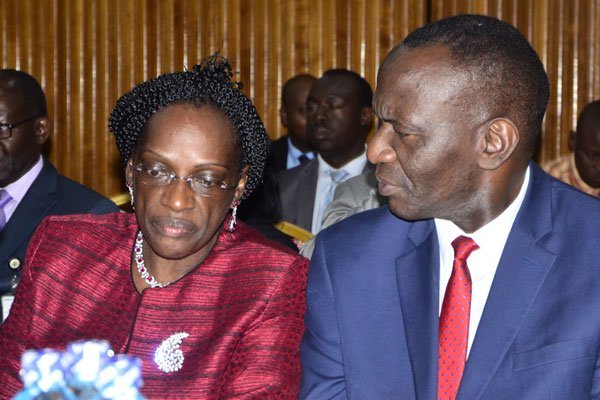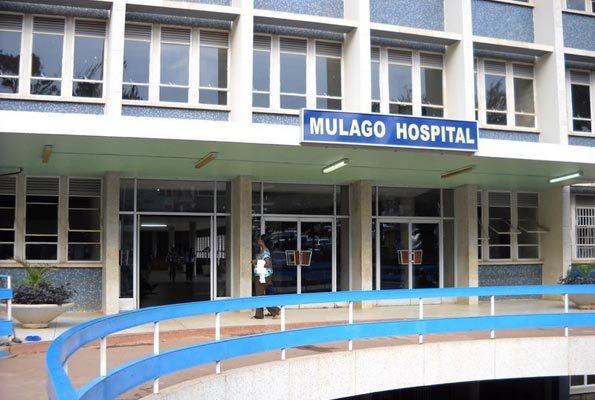Former BoU Executive Director-Supervision, Justine Bagyenda and the then Director Financial Markets at BoU, Bernard Ssekabira (R) appearing before the COSASE probe.
A report by the US state department has noted with disappointment that more than a year after the parliamentary committee on Commissions, Statutory Authorities, and State Enterprises (COSASE) released its report into the closure/sale of commercial banks by the central bank, no action has been taken.
The controversially closed banks include Teffe Bank, International Credit Bank Limited (ICB), Greenland Bank, Cooperative Bank, National Bank of Commerce, Global Trust Bank and Crane Bank Limited.
The US government, according to the report, expressed shock that no “resignations” had been made as a result of the report noting that failure to act is likely to breed a culture of corruption.
“On February 18, the Parliament Committee on Commissions, Statutory Authorities, and State Enterprises (COSASE) published its findings from the 2018 inquiry into “irregular conduct” by the central bank in the process of taking over defunct banks and noted that the central bank acted irregularly in the process. It recommended that central bank officials responsible should account for their actions. Local media reported that MPs across political lines faulted the COSASE for not naming individuals responsible or recommending any arrests. On February 19, the Inspector General of Government (IGG) asked ISO to investigate allegations that members of the COSASE had received bribes from officials in the central bank. In March media reported that the speaker of parliament rejected this request and wrote that it was an attempt to attack parliamentary investigations and “blackmail” and “intimidate” parliamentarians. By year’s end there were no criminal proceedings or resignations resulting from the COSASE report,” the report noted.
COSASE recommendations
The COSASE report on the sale/closure of banks which was released in February last year called for wide ranging changes at the central bank. It also called for punishment of the implicated officials.
Among other things, the report recommended that contracts of the governor of Bank of Uganda Tumusiime Mutebile and his deputy, Dr Louis Kasekende should not be renewed.
The report singled out other officials that should be held culpable in the mismanagement of the sale of some commercial banks. These are: Benedict Ssekabira, the director of Financial Markets Development Coordination (FMDC), Justine Bagyenda, the former executive director for Commercial Banks supervision; and Margaret Kasule, the legal counsel.
It noted that recommendations and a board needs to be strengthened in the way it plays its supervisory role.
“The board did not adequately supervise management in the process of liquidating the financial institutions,” reads part of the report, adding:
“Good corporate governance principles would require that the position of chairperson and vice chairperson of the board is separated from the position of Chief Executive (Governor) and his Deputy.”
“It is therefore the recommendation of this committee that article 161 (4) (of the Constitution) be reviewed to separate the offices of the leadership of the board and top management of BoU,” noted the report.
Regarding the sale of Crane Bank, the MPs also found “The principles of legality therefore were highly compromised. This is exacerbated by the absence of minutes or any record detailing the process of arriving at the figures,” observed the MPs, further adding that failure to value the assets and liabilities of Crane Bank before selling it to dfcu was “imprudent”.
-info256.com





